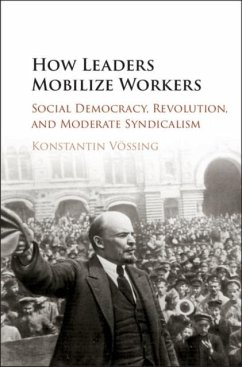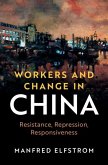This book explains why leaders choose social democracy, revolution, or moderate syndicalism to mobilize workers, and why it matters. In some countries, leaders have responded effectively to their political environment, while others have made ill-fitting choices. Vossing explains not only why leaders make certain choices, but also how their choices affect the success of interest mobilization and subsequent political development. Using quantitative data and historical sources, this book combines an analysis of the formation of class politics in all twenty industrialized countries between 1863 and 1919 with a general theory of political mobilization. It integrates economic, political, and ideational factors into a comprehensive account that highlights the critical role of individual leaders.
Dieser Download kann aus rechtlichen Gründen nur mit Rechnungsadresse in A, B, BG, CY, CZ, D, DK, EW, E, FIN, F, GR, HR, H, IRL, I, LT, L, LR, M, NL, PL, P, R, S, SLO, SK ausgeliefert werden.









